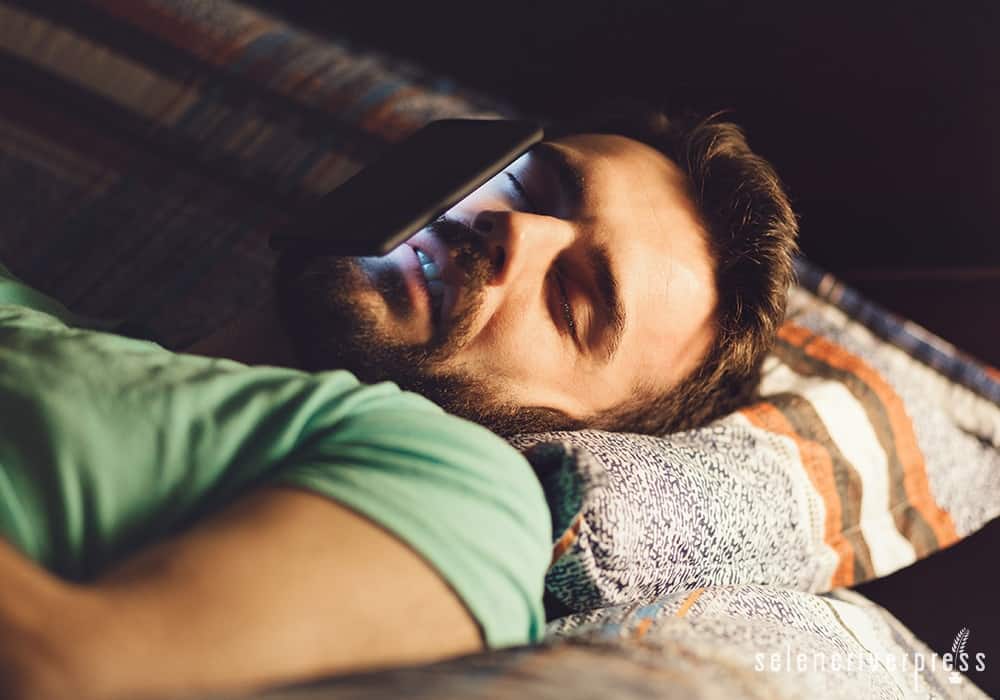Are you guilty of taking your phone to bed with you? You’re not alone. Probably millions of people place their phones underneath their pillow or on the bedside table every night—that is, if they haven’t fallen asleep with their phone clutched in their hand.
If you’re seeking a good night’s sleep, lying down with your eyes glued to the screen is one of the worst things you can do, along with drinking coffee before bed. Research has shown that exposure to the blue wavelength light emitted by electronic screens increases alertness and affects our internal clock.
Blue light also suppresses the body’s production of melatonin. As a result, you end up more awake than sleepy, making it hard for you to doze off at night and have a good, restful sleep.
But what if you simply can’t stay away from your phone? What if having it around is a necessity? Below are some tips for using your phone at night and limiting your exposure to blue light.
Use Your Phone’s Night Mode
Most phones today come with a night mode that automatically changes the screen’s display. Instead of the bright blue-white light the phone emits during daytime, it will give off a warmer or yellow light. You can set this feature to turn on automatically during the evening hours or turn it on manually if you prefer.
Install Mobile Apps
If your phone doesn’t come with a night mode, install a mobile app that allows you to adjust the brightness and color intensity of the screen display. You can change the display from daytime blue to a more night-friendly orange or yellow tint.
Listen to Soothing Music or Podcasts Instead of Watching Videos
Visual images can spur the brain to action, especially if you’re watching a series of quirky ads, movie trailers, or your favorite shows. Instead of watching videos, listen to calming music and relaxing podcasts. If you find a podcaster with a droning voice, listen to them to help you fall asleep!
Disable the Wi-Fi or Cellular Data
Disconnecting from the internet is one of the most effective ways to get yourself to stop checking your phone every now and then during bedtime.
Use Onscreen Filters or Glasses
You can put screen filters over your phone screen and even wear low blue light glasses to minimize your exposure to blue light.
Put Your Phone to Bed Earlier
Putting your phone away or placing it somewhere you can’t reach it while in bed will also reduce your exposure to blue light. Finish up everything you need to do on your phone at least half an hour before you go to sleep, and then put it on a table or chair a few feet away from you so you won’t get tempted to twiddle with it when you’re supposed to be falling asleep.
Grab a Book
After you put your phone to sleep, grab a book. Either something you want to read or something boring. Reading before bed is a great way to take your mind off your busy life and let your melatonin take over.
Nighttime exposure to blue light has been shown to suppress melatonin production, disrupt the internal body clock, and affect sleep. If your phone is your constant companion, follow these tips so the bright light coming from your phone won’t keep you from getting a good night’s rest.
Image from iStock/Marjan_Apostolovic.

